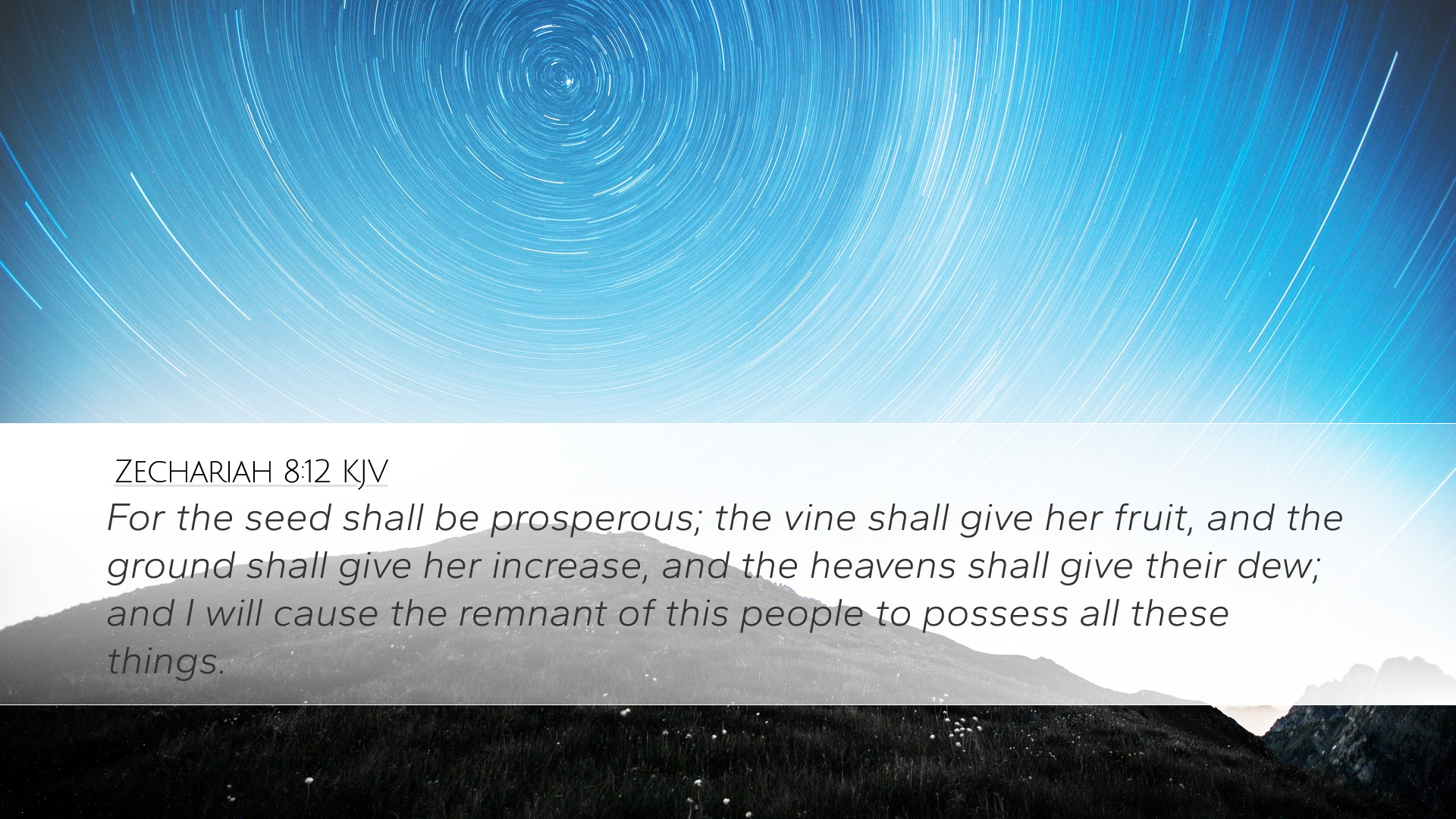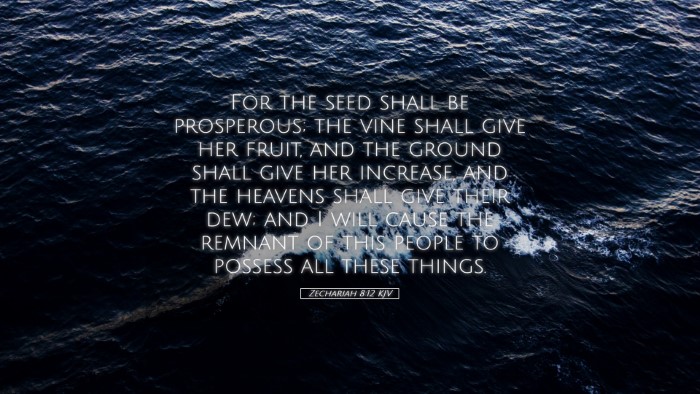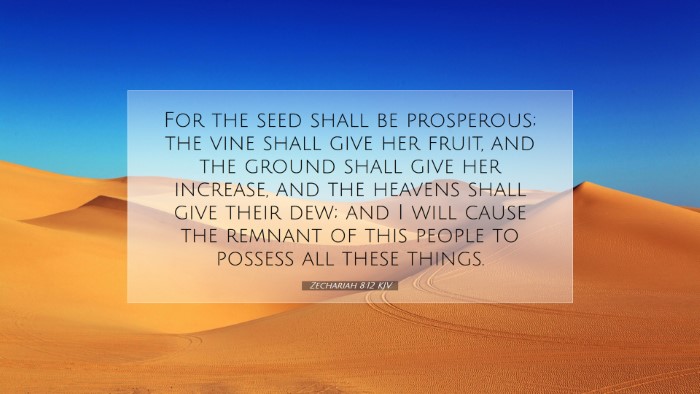Commentary on Zechariah 8:12
Zechariah 8:12 states:
"For the seed shall be prosperous; the vine shall give her fruit, and the ground shall give her increase, and the heavens shall give their dew; and I will cause the remnant of this people to possess all these things."
Contextual Overview
In this prophetic book, Zechariah addresses the post-exilic community in Judah, encouraging them as they rebuild their nation and restore their relationship with God. The chapter serves as a promise of divine blessing, peace, and prosperity, particularly in the agricultural and socio-economic realm. The prophetic imagery used is rich, drawing on the agrarian culture of the time.
Theological Insights
This verse encapsulates God's covenant faithfulness. Through a careful analysis of public domain commentaries, we see several key themes emerge:
- Covenant Assurance: Matthew Henry emphasizes God's unwavering commitment to His people. The phrase "the seed shall be prosperous" is a reminder of God's promise to bless the work of their hands (Henry).
- Fruitfulness and Abundance: Albert Barnes notes the imagery of the vine and the ground, symbolizing not merely agricultural prosperity but also spiritual flourishing. The vine, often a symbol of Israel, conveys the themes of growth and vitality inherent in the covenant community.
- God's Provision: Adam Clarke elaborates on "the heavens shall give their dew," interpreting this as a metaphor for God’s provision through natural means. It signifies that divine favor will rest upon the land, ensuring every need is met.
Exegesis of Key Phrases
Each phrase in this verse paints a vivid picture of restoration and divine blessing:
- "the seed shall be prosperous": This promises agricultural success. Seed, representing the new generation, signifies hope. Commentaries suggest this success extends beyond physical crops to the spiritual renewal of Israel.
- "the vine shall give her fruit": The vine is an enduring symbol of Israel (cf. Psalm 80:8). In this context, its fruitfulness reflects spiritual health and fulfillment of God’s purpose. Barnes highlights that this fruit may also symbolize the joy of worship and communal life in harmony with God.
- "the ground shall give her increase": Clarke stresses the importance of the ground yielding its produce, echoing the promise given in Deuteronomy (Deut 28:4). It symbolizes not only agriculture but also societal growth and stability.
- "the heavens shall give their dew": Dew, often representing subtle yet essential nourishment, highlights God’s intimate provision, fostering life in the land. It signifies a gentle but sure sustenance from God above (Henry).
- "the remnant of this people to possess all these things": The term "remnant" speaks of a faithful group amid widespread despair or destruction. Barnes suggests that this shows God's grace in restoring a remnant who remain steadfast in faith.
Practical Application
For contemporary readers, especially pastors and theologians, this text offers profound lessons:
- Trust in Divine Provision: As God's people today, we must recognize that true prosperity and growth come from Him. The reliance on God for spiritual and material well-being is timeless.
- Community Restoration: Just as Zechariah spoke to a remnant, modern communities can embrace the hope of renewal despite past challenges. Restoration implies active engagement in community life, fostering fellowship and joy.
- Faithfulness amidst Difficulty: For Christian leaders, serving a bruised and broken world calls for the assurance that God's promises stand firm. As Zechariah's audience awaited restoration, so too do we await the full realization of God's kingdom.
Conclusion
In conclusion, Zechariah 8:12 serves as a powerful reminder of God's merciful and covenantal blessings. The extensive insights from Matthew Henry, Albert Barnes, and Adam Clarke highlight the richness of this text as it pertains to God's provision and the restoration of His people. We are reminded that a prosperous seed, fruitful vines, and a fertile ground contribute not only to physical sustenance but also signify a community deeply rooted in faith and in relationship with God. This philosophical and theological inquiry calls on all believers to maintain faith in God's providence for fruitful living.


